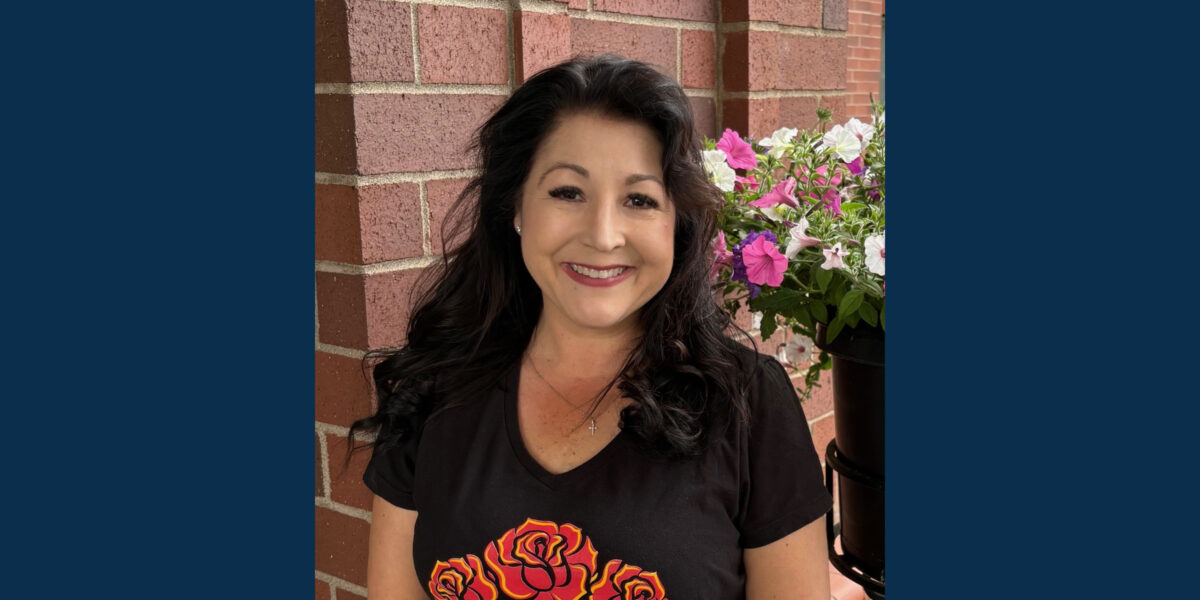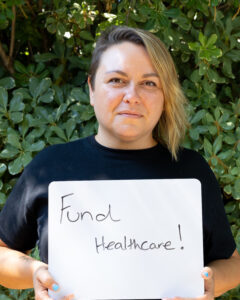

Local Perspectives on Improving Health and Wellbeing for Farmworker Families in Northern Sonoma County: Sue Labbe
2 min read. Sue Labbe, CEO of Alliance Medical Center, offers her perspective on the obstacles farmworkers face in accessing healthcare.
Sue Labbe is the CEO of Alliance Medical Center. Sue has worked in California’s healthcare field with underserved populations since 2001 and in Sonoma County since 2017. Most recently, she served as Alliance’s Medical Director and Chief Medical Officer. As a nonprofit “one-stop” community-wide provider and a particular safety net for low-income families and individuals in Healdsburg and Windsor, Alliance plays a crucial role in equitable access to healthcare in the region.
How would you describe the general situation with respect to health and wellbeing for farmworker families in northern Sonoma County?
Many farmworkers have limited access to preventative medical care due to lack of insurance or a high-deductible insurance plan that makes the cost of care unmanageable. In the last report released on the health and wellbeing of Sonoma County farmworkers, only 30% of Sonoma County farmworkers had health insurance, and this was the main barrier to them receiving medical care. The report did note that 61% of farmworkers who needed medical care in Sonoma County received that care from a health center like Alliance.
Farmworkers that come to Alliance for their care know they will receive high-quality care while being treated with dignity and the ability to communicate in their preferred language. Over 80% of our staff is bilingual/bicultural, speaking both Spanish and English fluently. Farmworkers and their families also know that if they lack insurance or have a high-deductible insurance plan that they cannot afford, they can receive care through our sliding fee program at a highly reduced rate. Those who come to us for care also know that no one will be turned away due to inability to pay.
What are the biggest challenges or obstacles to accessing healthcare for farmworkers?
Cost of care and cost of medication(s), lack of access to transportation, inability to take time off from work to attend to their healthcare needs, and lack of access to bilingual/bicultural services.
“In the last report released on the health and wellbeing of Sonoma County farmworkers, only 30% of Sonoma County farmworkers had health insurance, and this was the main barrier to them receiving medical care.”
Sue Labbe, Chief Executive Officer, Alliance Medical Center
What, in your opinion, are the solutions and/or some practical steps in the direction of bettering access and improving opportunities for health and wellbeing for farmworkers and their families?
Collaboration between employers and Health Centers to support improved access. Funding for transportation, unreimbursed care costs, medication costs, and mobile care delivery options. With the upcoming Medi-Cal expansion we need to understand what barriers may exist that might prevent currently uninsured farmworkers from enrolling in Medi-Cal as well as other publicly funded assistance programs. Once barriers are identified, real cross-organizational efforts need to be made to help farmworkers and their families overcome those barriers.
Sonoma County farmworkers lack access to safe and affordable housing options. As we saw during the pandemic, crowded living conditions can significantly impact health and wellbeing. Increased access to affordable housing is needed.
Is there anything you think the wider community (including nonprofits) of northern Sonoma County should know that might help to move things in the right direction?
Sonoma County farmworkers (44%) are three-times more likely to report their own general health as Poor or Fair when compared to Sonoma County adults in 2011-12 (13%). They also have a higher prevalence of diabetes and high blood pressure but are less likely to be taking medications for these conditions when compared to other Sonoma County adults with the same conditions.
Moreover, the vast majority of farmworker families in Sonoma County do not earn enough to meet their family’s basic needs. Poverty is a strong social determinant of health. This puts Sonoma County farmworker families living in poverty at a disproportionately high risk of chronic diseases and associated poor health outcomes.
Public funding for Health Centers has been cut drastically coming out of the pandemic and support is needed to help make sure access to care is not only maintained but also expanded. Keeping our Sonoma County farmworkers healthy and supporting direct service providers like Alliance is essential for the health and wellbeing of everyone who calls Sonoma County home.
The Healthcare Foundation’s mission is motivated by a vision of eliminating health inequities in northern Sonoma County. In recent months and years, Sonoma County farmworkers and their families have faced increased precarity and the repeated disruption of their lives as a result of forces beyond their control, from the pandemic to the impacts of climate change, with the attendant physical and mental health impacts and challenges this entails. The goal of health equity requires that we address the obstacles and challenges to their health and wellbeing. As part of the Healthcare Foundation’s effort to focus on farmworker health, we are turning to our community partners and other local stakeholders to better understand the need, the obstacles, and most importantly, the practical steps that can be taken to improve health and wellbeing for our region’s agricultural workers. We continue to collect information, engage in dialogue, and work cooperatively toward community-based solutions that can protect and enhance the wellbeing of farmworkers and their families.
Other Perspectives:
- Dr. Daniela Domínguez, Assistant Professor at USF and CEO of On The Margins (2 min read)
- Jocelyn Boreta, Executive Director and Co-Founder of The Botanical Bus (2 min read)
- Corazón Healdsburg’s Promotora Staff (2 min read)
- Jade Weymouth, Executive Director of La Familia Sana (2 min read)
- Bertha Diaz, Community Health Worker / Promotora and Financial Services Specialist at Alexander Valley Healthcare (1 min read)
- Alma Bowen, Founder and Executive Director of Nuestra Comunidad (1 min read)

Related News + Stories
Invest in Our Community
Your support is vital to our collective vision of eliminating health inequities in northern Sonoma County.
Donate



